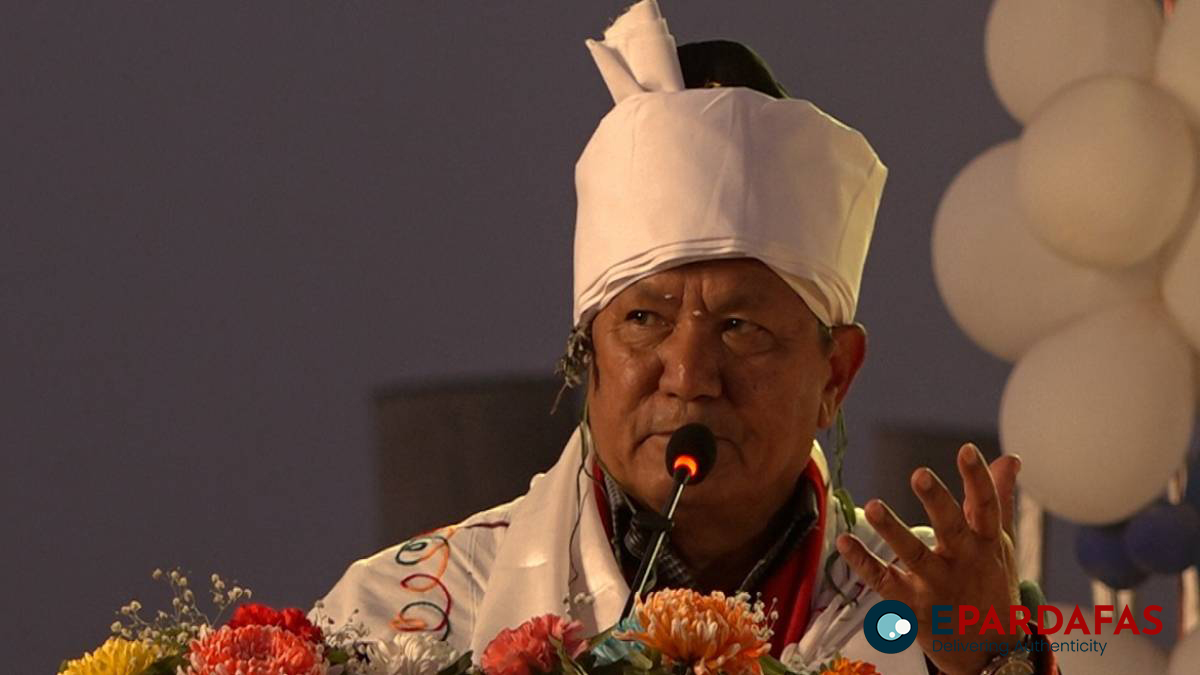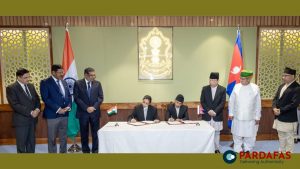
Government Ordinance Driven by Necessity, Not Intention: Minister Prithvi Subba Gurung
Minister for Communications and Information Technology, Prithvi Subba Gurung, clarified that the government’s recent ordinance was introduced out of necessity rather than any ulterior motive. Speaking at the inauguration of the Maghe Sankranti festival organized by the Nepal Magar Association at Tundikhel in Kathmandu, he emphasized the ordinance’s role in expediting public service delivery and addressing administrative inefficiencies.
Minister Gurung, who also serves as the government spokesperson, highlighted the hurdles posed by Nepal’s complex legal framework, noting that procedural laws often take over six years to formulate. “The ordinance has been introduced to simplify the delivery of services to the people,” he said, stressing its importance for fostering an environment conducive to information technology (IT) businesses.
He elaborated that the ordinance would enable IT entrepreneurs to access loans from foreign companies, ensure concessions for businesses, and streamline public administrative services. Additionally, it aims to maintain good governance and combat corruption.
“The ordinance mandates that if any government office fails to complete a citizen’s work within seven days, provisions have been made for seeking explanations or taking action,” Gurung explained. He also addressed concerns about municipal and rural administrative operations during leadership suspensions, stating that village executive members could select an acting leader to ensure uninterrupted services.
Call for Indigenous Communities to Exercise Constitutional Rights
Minister Gurung urged the Magar community to fully utilize the rights guaranteed by Nepal’s Constitution, which he described as a hard-earned outcome of peaceful indigenous movements. He observed that indigenous tribal communities were not taking full advantage of these constitutional provisions.
Commending the Magar community’s contributions since the nation’s unification, he highlighted its prominence as the largest indigenous group in Nepal. He urged Magar-dominated provinces, such as Gandaki and Lumbini, to take the lead in preserving and promoting the Magar language and culture. “I request the provincial governments to recognize and establish the Magar language script as an official language in their respective regions,” he said.
Government’s Commitment to Multiculturalism and Inclusivity
Minister Gurung reaffirmed the government’s commitment to respecting Nepal’s multi-ethnic, multicultural identity. He noted efforts to honor the country’s diverse cultural festivals through public holidays and other promotional initiatives. “The government respects all mother tongues spoken in Nepal and upholds secularism, which values all religions equally,” he stated, calling on indigenous communities to focus on exercising their constitutional rights.
The festival at Tundikhel served as a platform for Minister Gurung to underscore the government’s initiatives and encourage inclusive participation in Nepal’s diverse socio-cultural framework.
- Health Insurance Now Covers Nearly Half of Gandaki Province’s Population
- Mercure Kathmandu Extends Financial Support to Cancer Care Nepal
- DRRMNC Urges Swift Action to Tackle Forest Fires and Accelerate Reconstruction Efforts
- Nepal Observes People’s Movement Day to Commemorate Restoration of Democracy













Comments